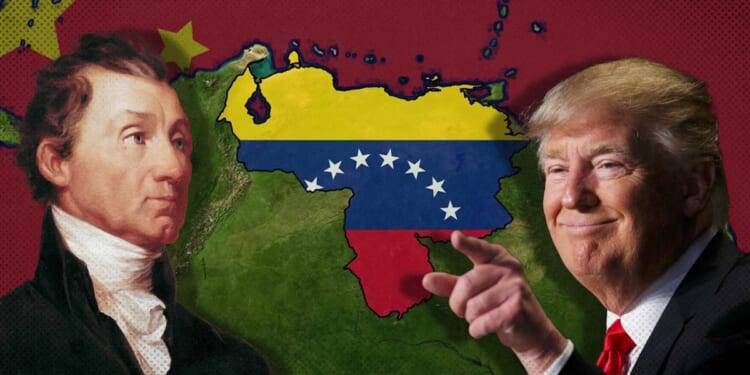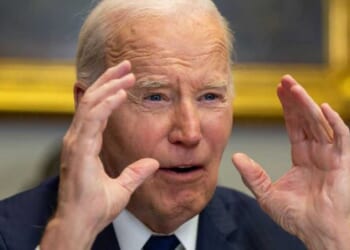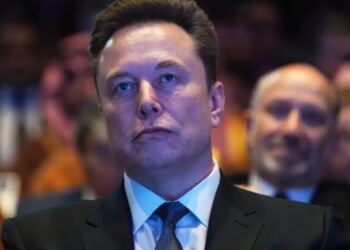With the U.S. Navy’s Gerald R. Ford Carrier Strike Group now sailing toward Venezuela, questions are naturally being raised about how significant this apparent escalation will be.
For months, the Trump administration has been countering the proliferation of illicit drugs in the U.S., and in particular the trafficking of fentanyl. This has resulted in the U.S. military striking a number of small drug smuggling boats that have originated from Venezuela.
The drug boats have been tied to the Venezuelan-based transnational criminal organization Tren de Aragua, which the Trump administration has designated a Foreign Terrorist Organization (FTO).
The Trump administration has directly linked this illicit drug trafficking to the socialist regime of Venezuelan strongman Nicolas Maduro.
The striking and sinking of multiple drug boats has raised bipartisan concerns among lawmakers in Washington as to the legality of Donald Trump’s actions. Over the weekend, Democrat Senator Mark Kelly (AZ) called the Trump administration’s actions “questionable,” saying, “The White House and the Department of Defense could not give us a logical explanation on how this is legal.”
However, Republican Senator Lindsey Graham (SC) expressed little concern about Trump’s actions, contending that he was well within his authority as commander-in-chief to authorize them. “Rand Paul, I just fundamentally disagree with,” Graham said. “To the other senators, you deserve more information, and you’re going to get more information. But there is no requirement for Congress to declare war before the commander-in-chief can use force.”
Graham’s motivation appears to be aligned with Trump’s as he said, “It’s time for Maduro to go,” later adding, “We’re going to use military force like we have in the past to protect our country. … And if I were Maduro, I’d find a way to leave before heat goes down.”
Speaking of getting Maduro, it has recently come to light that U.S. agents sought to recruit Maduro’s personal pilot in a plot to capture the Venezuelan strongman and bring him into custody in the U.S. Maduro currently has a $50 million bounty on his head per the U.S.
It’s hard to argue against the appearance that the Trump administration is intent on provoking regime change in Venezuela. The question is whether Trump is willing to go to war to make it happen.
Furthermore, besides countering Venezuela’s drug trafficking, why is Trump so invested in countering Maduro?
The answer appears to be bigger than Maduro, and is tied to Trump’s determination to reassert America’s dominance in the Western Hemisphere. It’s the old Monroe Doctrine, or as some are dubbing it, the Donroe Doctrine.
Trump is intent on countering China’s growing influence in the region. Beijing has invested heavily in Central and South America, particularly in Venezuela, through oil and infrastructure projects. Indeed, Maduro’s regime has only been able to hold onto power as the Venezuelan economy has sunk due to socialism, thanks in large part to help from the likes of China and Russia.
With the USS Gerald R. Ford steaming through the Caribbean, Trump is not only sending a message to Maduro but, more importantly, he is sending a message to Xi Jinping, with whom he will soon be meeting. And that message is, “This is our neck of the woods. Stay Out!”
For Beijing, Trump’s reassertion of the Monroe Doctrine is frustrating China’s global economic agenda. China has invested billions in its soft-power ploy, known as the Belt and Road Initiative. Now, Trump comes along and is upsetting China’s proverbial apple cart. But there’s little Beijing can do about it. China is certainly in no position to militarily counter Trump’s move in the region.
So, to answer the question, is the U.S. headed to war with Venezuela? Only if Maduro makes the wrong move. Trump’s pressure campaign against the socialist strongman may soon lead to his ouster. The question is: who will then step up to lead the oil-rich nation?
















